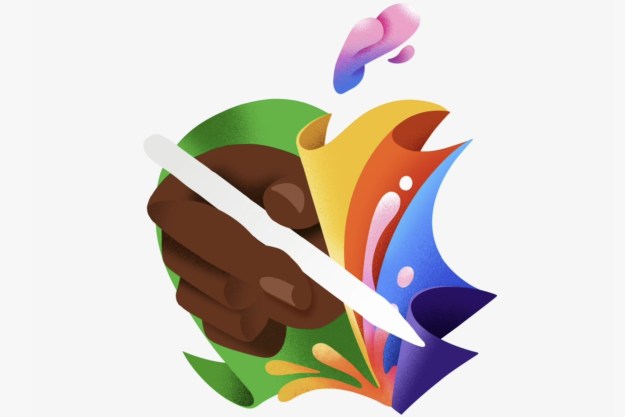
Okay, so it’s not entirely Google’s doing. Sidewalk Labs is a startup created by Google co-founder Larry Page, who currently sits as the CEO to Alphabet, Inc. The startup is also a subsidiary of Alphabet, (itself the relatively new parent company of Google, Google X, Nest, Fiber, and many more firms companies that were previously under the umbrella of Google). Sidewalk Labs isn’t exactly under the radar — it’s part of the reason New York City is getting gigabit-per-second Wi-Fi via LinkNYC’s hubs.
Based on that project and the company’s name, you can try and guess what type of problems it is trying to solve. For a clearer understanding, Sidewalk Labs’ website says it best:
“Sidewalk Labs is a new type of company that works with cities to build products addressing big urban problems,” the website reads. “We’re building a platform and a set of urban applications to accelerate innovation in cities around the world.”
How one of those platforms — Flow — works in conjunction with a city has been unveiled, thanks to documents unearthed by The Guardian. Flow is a cloud-based solution by Sidewalk Labs that wants to reduce traffic congestion, while also providing an easy way to direct people to parking. It’s a management solution that Sidewalk Labs has presented to the city of Columbus, Ohio for consideration. Why Columbus? The city won the Department of Transportation’s Smart City Challenge, which means it’s also receiving $50 million.
A large part of how Flow works is available to read on Sidewalk Labs’ website, and it’s worth noting that the partnership deal and finer contractual details haven’t been disclosed before.

Flow works like this: vehicles with cameras attached would first drive around the city, not unlike Google’s Street View cars, to record roadside parking signs and map out all the public parking locations in the city. Then using data from drivers using Google Maps, Flow will estimate which parking spaces are still free, and direct such drives to empty spots.
Private parking lots can also take part in this city-wide initiative. Adding their database to Flow would let retailers and offices “temporarily rent” private parking spaces thanks to the “virtualized parking” solution. These virtualized spaces would be worth around $2,000 according to the documents from the Guardian.
All of this data would be integrated into Google Maps or another dedicated app, including public transport options and payment. That way, the app would be the one-stop shop for picking and paying for your method of transportation, from Ubers and bike-shares to buses and subways.
“Flow is about using data and analytics to help cities work with their citizens to increase the efficiency of road, parking, and transit use, improving access to mobility for all,” Anand Babu, COO of Sidewalk Labs, told Digital Trends. “Flow will allow cities to understand their transportation systems in real time, and could be used to improve and plan public transportation, guide drivers directly to parking, or point commuters to shared mobility options they can use when public transportation is not an option.”
Flow isn’t meant to replace existing systems, but to complement and add more features to them.
“The DOT Smart City Challenge has inspired cities to shift away from operating in traditional agency silos and towards creating a coordinated, outcome-focused transportation system that reduces congestion and enhances transport equity,” Babu said. “We are proud to partner with Transportation for America and cities across the country to continue this important dialogue.”
Drivers trying to finding parking is a large reason for traffic in urban areas — delivering them to free spots quickly is Sidewalk Labs’ plan of alleviating your commute. But rather than a standard cost, Sidewalk Labs wants to vary it based on demand — like Uber’s surge pricing during peak hours. That increases revenue to the city by 10 percent.
Flow also has an “optimized parking enforcement” mod that uses artificial intelligence algorithms to display the routes that parking enforcement can make the most money from — which could mean an extra $4 million in fines for a medium-sized city. Documents show that along with implementing Flow, Sidewalk Labs proposed the city to upgrade to a mobile payments system, most likely to allow support for Android Pay, and also modernize public parking to increase city revenue.
The main proposal includes deploying 100 Wi-Fi hubs around Columbus, and access to Flow would then be free. Of course, Columbus would be the testing ground for this new service, and the demonstration will take up to 3 years. Sidewalk Labs wants 90,000 low-income transit users to use their transportation subsidies on ride-sharing services, rather than discounted or free bus passes. Of course, all that money goes to ride-sharing companies like Uber, which could be controversial. Google Ventures has invested about $258 million in the popular ride-sharing company.
Altogether, the city would receive 1 percent of the revenue from the app which apparently equals to $2.25 million, Sidewalk Labs estimates. We assume a large chunk of that money also goes to paying users and vendors who add their service to Flow, but it’s unclear what the proposed cut is for Sidewalk Labs.
Policy hurdles would have to be dealt with by the city during the demo period, and these include implementing demand-based pricing regulations. Sidewalk Labs wants to start exchanging data with Columbus in August, and launch the whole service by July 2017. The dynamic parking feature would launch in January 2017.
It’s a big decision, one that calls into question a lot of issues including privacy, and how much data collection will occur considering Google is associated with Sidewalk Labs. Also, it seems as though there’s a heavy reliance on residents using Google Maps, with no indication as to what happens if most people in an area are using another mapping tool. Columbus isn’t rushing to make any decisions.
“The Flow system is definitely something we see real value in,” Rory McGuiness, director of Government Affairs and Labor Relations of Columbus, told The Guardian. “But we have not [yet] signed any agreements with them.”


